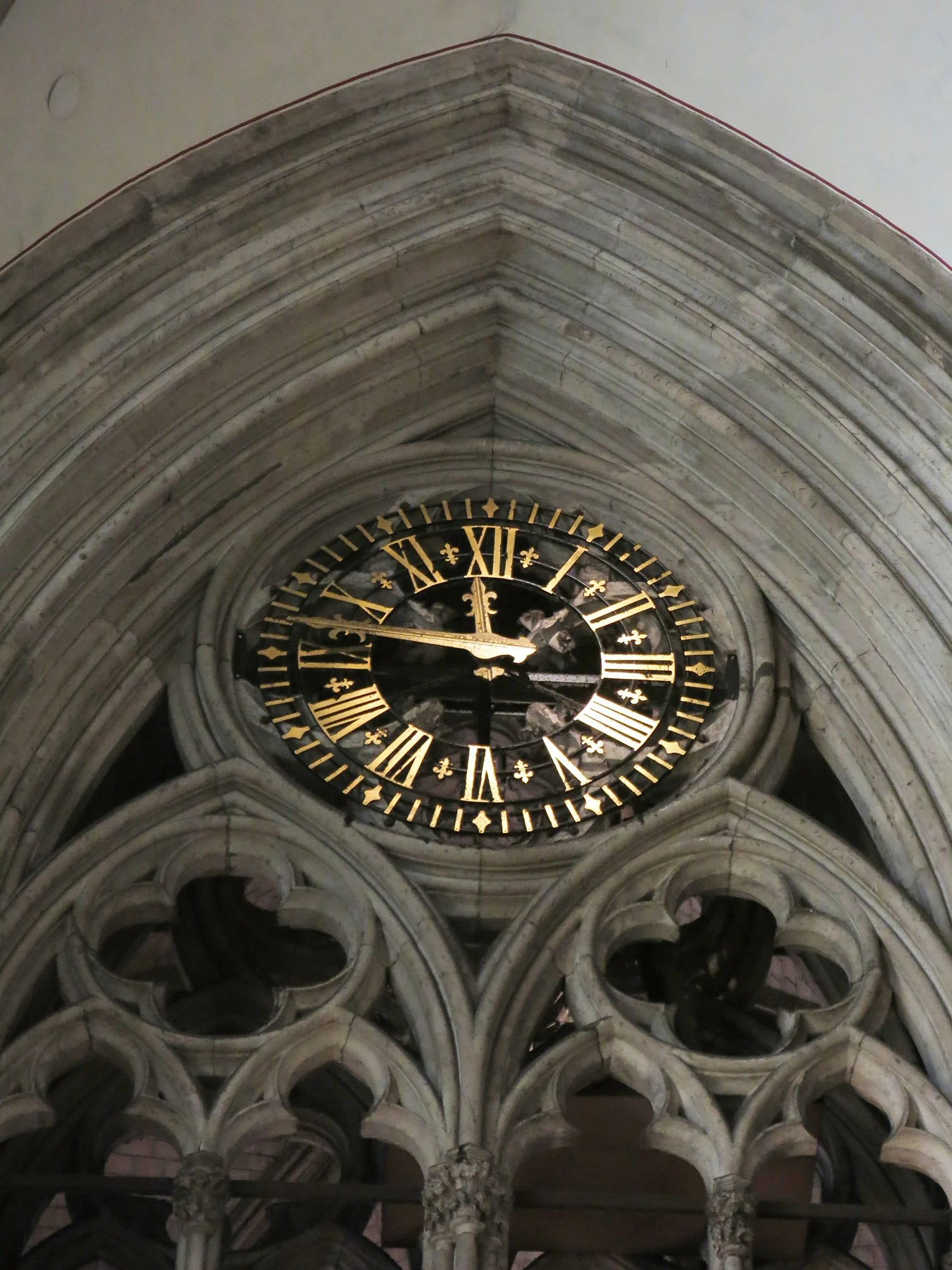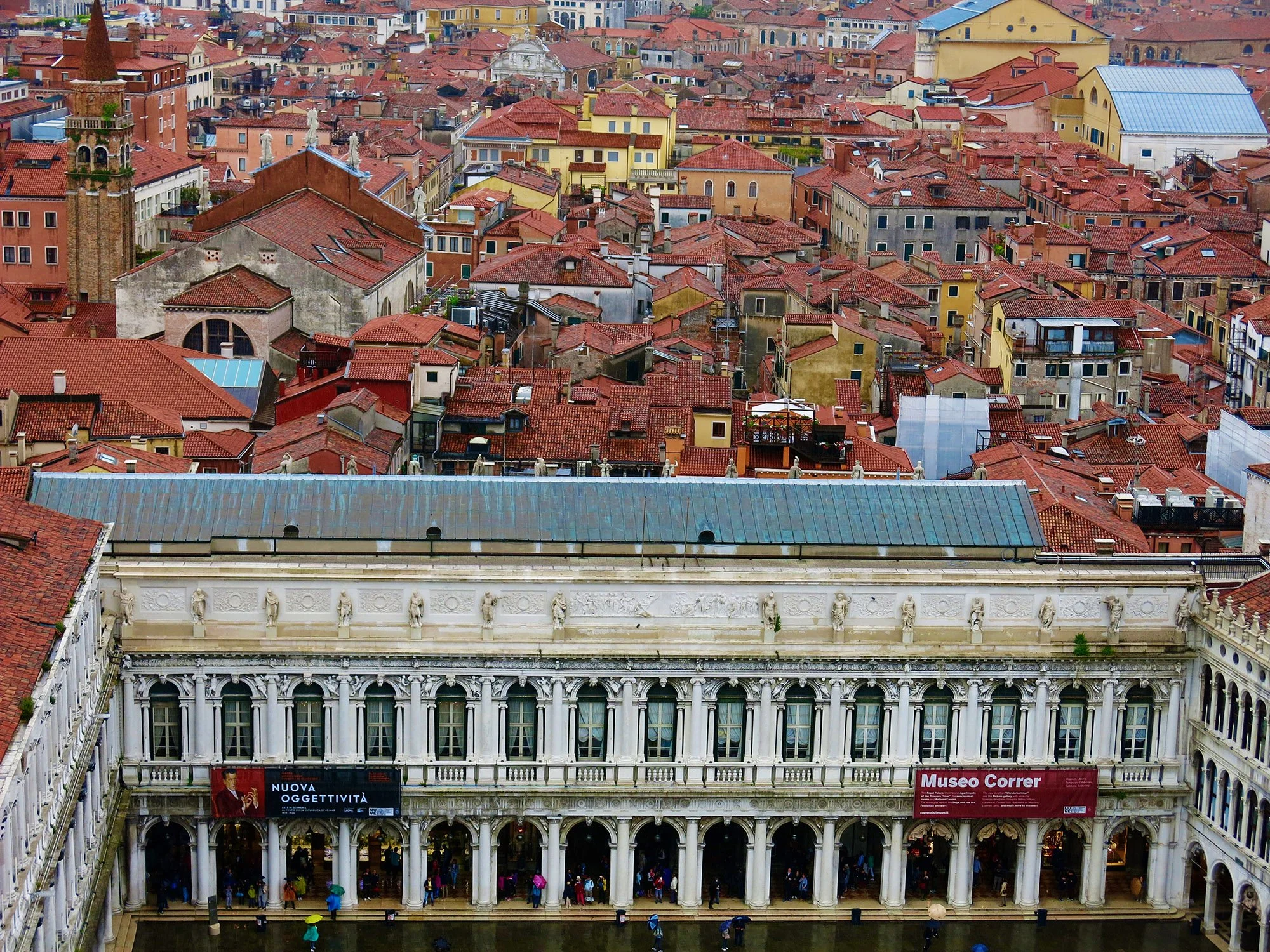By Faith: What a Way to Live!
In Venice, Italy
Looking Back
When I was in high school, among my Christian friends, two brothers who were popular and handsome and voted all the things in the annual that people want to be remembered for, gave out little white buttons for those to us who were also Christians. Round, the size of a quarter with a pin on back like a campaign button to be worn, the letters “PBP GINFWMY” were written so that people who noticed would ask, “What does that mean?”
Scripted, sort of, those wearing the button were to reply that the letters stand for “Please be patient. God is not finished with me yet.” Next, launch into a personal testimony about our faith in Jesus Christ, “Let me tell you about the greatest thing that has ever happened to me,”
Well, with age and experience and some wisdom, I can admit a personal testimony is not essential to saving anyone. The Gospel is what brings people to Christ.
“For I am not ashamed of the gospel, because it is the power of God that brings salvation to everyone who believes: first to the Jew, then to the Gentile. For in the gospel the righteousness of God is revealed—a righteousness that is by faith from first to last, just as it is written: “The righteous will live by faith.””
Yet the earnestness and enthusiasm of that “campaign” did get people’s attention.
Both brothers, and their younger brother too, became pastors of churches, overseas missionaries, and currently, one of the brothers is a professor at Truett Seminary. These friends and their dear Mom and Dad, changed the course of my life. I still wonder why a family with three sons would take in a ragamuffin girl like me.
Now that I think of it, they knew God wasn’t finished with me yet.
Ruth Bell Graham, wife of Billy Graham, was born in China in 1920 to missionary parents. She died in 2007, age 87. Inspired by a road construction sign she had seen, she chose as her epitaph: “End of Construction. Thank you for your patience.”
What a brilliant way to look back on life. We are each of us under construction. God has dedicated Himself to growing our character. To chip away at the parts of us that don’t look like Jesus. The road repairs that slow traffic correspond to those places in your life and mine intended to make of us a raised highway (see Isaiah 49).
The writer of Hebrews uses Old Testament history to illustrate how God’s people persevered throughout their lives and how they received God’s commendation because they walked by faith. The universal history of the human race began in Genesis 1–11.
Starting with Abel, the second born son of Adam and Eve, the writer of Hebrews emphasizes that “through his faith, though he died, he still speaks” (Hebrews 11:4, ESV).
Those persons named in Hebrews 11 point readers back to the record of their stories in the Old Testament. Footnotes, you might say, to where the Bible illustrates what faith looks like in a person’s life while they live it. Not simply ideas about God, but how to live in the meantime.
Each person’s story reveals aspects of God’s character and His redeeming love. And like Abel, who Jesus declared “righteous,” these people speak to you and me today, even though they are dead.
[1 Footnotes below for Old Testament references]
Inside the Messy Middle
Rooftops in Venice, Italy
Abraham
The Bible says, “Abraham believed God and it was accounted/credited to him as Righteousness” (Galatians 3:6).
What does it mean for Abraham’s faith to be credited to him as righteousness?
When Abraham was tested, he prepared not only to give up his son, but by sacrificing his son––the son God had specified would be the heir of the promises God had made to him, Abraham also would be letting go of the promises his son represented.
How do you and I know Abraham believed God?
1) Abraham obeyed and went, even though he didn’t know where he was going (Hebrews 11:8). The writer of Hebrews amplifies this meaning in verses 14–16
All these people were still living by faith when they died. They did not receive the things promised; they only saw them and welcomed them from a distance, admitting that they were foreigners and strangers on earth. People who say such things show that they are looking for a country of their own. If they had been thinking of the country they had left, they would have had opportunity to return. Instead, they were longing for a better country—a heavenly one. Therefore God is not ashamed to be called their God, for he has prepared a city for them.
2) Abraham considered Him faithful who had promised him descendants as numerous as the stars (Hebrews 11:11–12).
3) Abraham offered his son Isaac as a sacrifice, believing God was able to raise Isaac from the dead, “and figuratively speaking, he did receive him back” (Hebrews 11:17–19).
Isaac
Beginning in Hebrews 11:20, we read about Abraham’s son Isaac. Isaac was a young man when his father tied him to the altar. He would have recalled his father’s faith and how God provided the sacrifice to take his place.
Read the backstory in Genesis 25:19–34.
Remember, Isaac and his wife Rebekkah had two sons, Jacob and Esau. Esau was his father’s favorite, and Jacob was his mother’s favorite.
Whenever I read this part of their story, I recall that when my dad was killed in a car accident, my grandfather went to the funeral home to identify his body. Two of my grandfather’s other sons stood nearby.
My Unc described how my grandfather picked up his son’s body––my dad’s body––hugging it, crying, and saying in a loud, anguished voice of grief, “He was my FAV-O-RITE son, my fav-o-rite son,” (emphasis on “rite,” rhyming with “kite.”)
While only 9 years old, I had no way to envision that scene or know how hearing their father say those words affected my two uncles, I can say the whole family fell apart after my dad died.
The story of Isaac pictures some of the problems that result in families when parents have their favorite child. Isaac wanted the blessing to pass to his favorite son, Esau. Rebekah wanted Jacob to receive his father’s blessing. Using devious means, Rebekah got her way, but not without consequences that followed.
But what’s remarkable in Hebrews 11, the writer does not mention the family’s problems.
“By faith, Isaac blessed Jacob and Esau in regard to their future” (Hebrews 11:20)
It occurred to me, this was not the blessing Isaac had imagined for his son Esau, but God in his sovereignty blessed the future He had in store for Jacob and his descendants.
And isn’t that way in our lives too? We think that by telling God what we want, we can devise for ourselves the best possible future.
Oswald Chambers says, “God’s aim looks like missing the mark because we can’t see what God is aiming at.”
Isaac wanted to pass on to Esau his property and his birthright as the eldest son. But the scripture tells us that Esau had sold his birthright and forfeited his inheritance to his brother Jacob. He sold his rights for a single meal (Hebrews 12:16).
So the line of faith continues through Isaac who had some bumps in his road. He and his wife Rebekah had family problems yet they lived by faith in God’s promises to bless Abraham’s descendants.
Jacob
Not a lot is said about Jacob. “By faith Jacob, when he was dying, blessed each of Joseph’s sons, and worshiped as he leaned on the top of his staff” (Hebrews 11:21).
Jacob lived a hard-knocks life. Many, if not most of his troubles, he brought upon himself. Yet God made it clear that he had chosen Jacob not because of but in spite of his hard head, devious ways and means, and the lessons life dealt to get him to rely on God.
“… Jacob worshiped as he leaned on the top of his staff.”
This tiny detail refers back to when Jacob wrestled with God, and an angel touched the socket of Jacob’s hip. That’s when God revealed himself personally to Jacob, and then forever after, Jacob walked with a limp (Genesis 32:22–32).
I love this picture of Jacob. An old man, worshipping, as amazed as anyone that God had been with him throughout his long, arduous journey.
This story footnote also illustrates how it astonishes any one of us whom God chooses to use, or when He saves someone who has made a mess of their life!
Yet it ought to astonish me that God would save “a wretch like me,” illustrating through my life His Amazing Grace.
Joseph
“By faith Joseph, when his end was near, spoke of the exodus of the Israelites from Egypt and gave instructions about his bones” (Hebrews 11:22).
Again, the writer of Hebrews leaves out most of Joseph’s story. [2]
By skipping to the end of Joseph’s life, the writer emphasizes the importance of preparation for God’s people to return to the land God had promised to Abraham and his descendants.
Joseph pictures the Sovereignty of God over details in life: how from youth to old age, God was with Joseph, drawing Joseph out of a pit where his brothers had left him to die. God elevated him to a position second only to Pharoah, the most important ruler in the world at that time.
Psalm 105 describes what God did in Joseph’s life while he waited in prison, how “the word of the LORD tried him” (KJV), in the original Hebrew, “God worked iron into his soul,” as God prepared Joseph for his future as a leader.
God used Joseph to save the lives of his own family and the Hebrew people during a famine in that land promised to Abraham and his descendants.
What a picture of grace and forgiveness when Joseph stood before the brothers who believed he was dead, those who had tried to kill him, and then told his father Jacob that he was dead.
Joseph wept as he forgave them for what they had done to him. Joseph could have had them punished and then executed. Instead, he forgave, restored and provided for their futures, insuring the entire future of God’s people.
I admit Joseph is my favorite. The way his life comes full circle, how the visions God gave him in his youth were literally fulfilled, how even as he was dying, he gave instructions to take his bones back home. He knew God was in control of the future.
Joseph’s life paints a picture of forgiveness––like Jesus.
“But Joseph said to them, “Do not fear, for am I in the place of God? As for you, you meant evil against me, but God meant it for good, to bring it about that many people should be kept alive, as they are today.”
That’s what suffering can do when a person has faith in God’s purposes. The suffering God allows will prove the mettle of a person’s character, strengthening them for testing (Compare Psalm 66).
And, like Joseph, life can bring you and me full circle.
For a Christian life under construction, situations where we are given the choice to forgive those who have hurt or wronged us are also opportunities to be made better, not bitter.
Jospeph’s story serves as the hinge between Genesis and Exodus.
Looking Ahead
I think I better save the rest of Hebrews chapter 11 for next time.
Until then, know that you and I are on a faith journey too.
Patience required. God is not finished with you yet either.
Most days, like most roads we routinely travel, are not blocked by construction. But when we do come up against obstacles, these problems give us the opportunity to move through them and beyond them by faith.
Keep the faith and your faith in God will keep you.
[1] God commended these people for their faith as illustrated:
Abel offered an acceptable sacrifice> Hebrews 11:4 and Genesis 4:3–5
Enoch walked with God> Hebrews 11:5 and Genesis 5:21–24
Noah built an ark> Hebrews 11:7 and Genesis 6:9–8:22
Abraham believed God> Hebrews 11:8, 11:11, 11:17 and Genesis 12–25
––Abraham is called the “father of the faithful” (Romans 4:16)
[2] Joseph’s story> Genesis 36–50; chapter 38 segues to Judah, to continue unbroken the lineage of Jesus.





